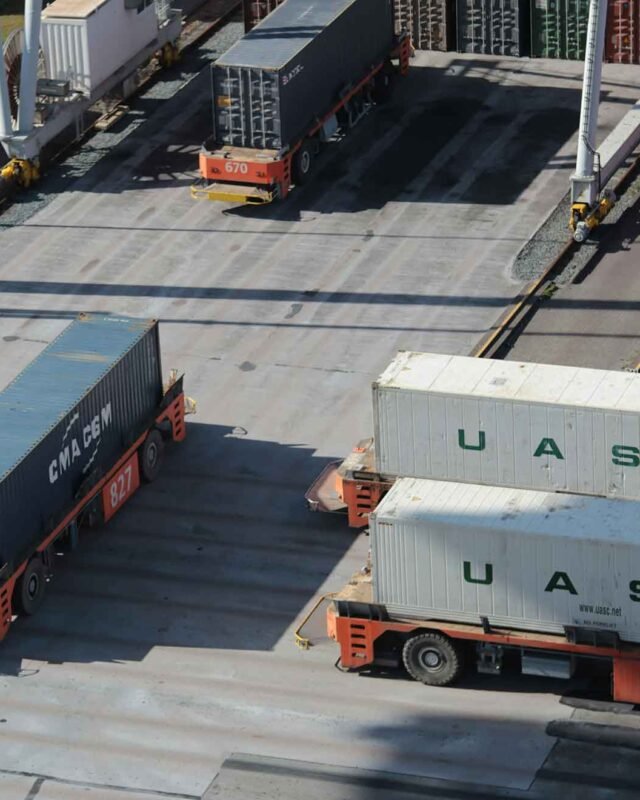Exploring the Development of Smart Logistics Solutions in Saudi Arabia
As Saudi Arabia continues to modernize its infrastructure and economy under the ambitious Vision 2030 initiative, the development of smart logistics solutions is playing a crucial role. Integrating advanced technologies into the logistics sector is transforming how goods are transported, stored, and managed across the Kingdom. This article explores the evolution of smart logistics Saudi Arabia, the role of technology, key projects, benefits, and the challenges faced in implementation.

The Role of Technology in Smart Logistics
Smart logistics in Saudi Arabia relies heavily on innovative technologies to enhance efficiency, accuracy, and reliability in supply chain operations. Key technologies driving this transformation include the Internet of Things (IoT), artificial intelligence (AI), blockchain, and autonomous vehicles.
- IoT and Real-Time Tracking: IoT devices enable real-time tracking of goods, providing detailed insights into their location, condition, and estimated arrival times. This technology enhances transparency and allows for proactive decision-making, reducing delays and improving overall efficiency.
- AI and Predictive Analytics: AI algorithms process extensive data sets to forecast demand, streamline routing, and oversee inventory management. Predictive analytics help logistics companies anticipate market trends and adjust their operations accordingly, ensuring a smoother and more efficient supply chain.
- Blockchain for Supply Chain Transparency: Blockchain technology offers a secure and transparent way to record transactions and track goods throughout the supply chain. This technology lowers the potential for fraud and guarantees that all stakeholders have access to precise and current information.
- Autonomous Vehicles and Drones: Autonomous vehicles and drones are revolutionizing the transportation of goods. These technologies reduce human error, lower operational costs, and improve delivery times, especially in remote or hard-to-reach areas.
Key Projects in Smart Logistics Saudi Arabia
Several key projects are underway in Saudi Arabia to develop and implement smart logistics solutions. These projects are instrumental in transforming the logistics landscape and positioning the Kingdom as a global logistics hub.
- NEOM: The futuristic city of NEOM is set to become a hub for advanced logistics solutions. With a focus on sustainability and innovation, NEOM will leverage IoT, AI, and autonomous vehicles to create a seamless and efficient logistics network.
- Riyadh Metro and Rapid Bus Transit System: These projects aim to enhance urban mobility and reduce traffic congestion in Riyadh. By integrating smart technologies, these systems will improve the efficiency and reliability of public transportation and logistics within the city.
- Saudi Railway Expansion: The expansion of the Saudi railway network, including the GCC railway project, will enhance regional connectivity and streamline the movement of goods across the Kingdom and neighboring countries. Smart technologies will be incorporated to optimize operations and improve service quality.
Benefits of Smart Logistics
The adoption of smart logistics solutions offers numerous benefits for Saudi Arabia’s logistics sector:
- Increased Efficiency: Automation and real-time tracking reduce delays and streamline operations, leading to faster and more reliable delivery of goods.
- Cost Reduction: Smart logistics technologies help minimize operational costs by optimizing routes, reducing fuel consumption, and lowering labor expenses.
- Enhanced Customer Satisfaction: Accurate tracking and timely deliveries improve customer satisfaction, fostering trust and loyalty among clients.
- Sustainability: Smart logistics solutions contribute to environmental sustainability by reducing carbon emissions through optimized transportation and efficient resource utilization.
Challenges in Implementation
Although there are many advantages, deploying smart logistics in Saudi Arabia encounters several obstacles:
- Infrastructure Development: Upgrading existing infrastructure to support advanced technologies requires significant investment and time.
- Cybersecurity Risks: The integration of digital technologies increases the risk of cyber-attacks, necessitating robust cybersecurity measures to protect sensitive data.
- Skilled Workforce: Developing and maintaining smart logistics systems require a skilled workforce proficient in handling advanced technologies. There is a need for training and education to build this expertise.
- Regulatory Compliance: Ensuring that smart logistics solutions comply with local and international regulations can be complex and time-consuming.
The Future of Smart Logistics in Saudi Arabia
The future of smart logistics Saudi Arabia is promising, with continued investments and advancements expected to drive further growth and innovation. As the Kingdom progresses towards its Vision 2030 goals, smart logistics will play a vital role in enhancing economic development and global competitiveness.




